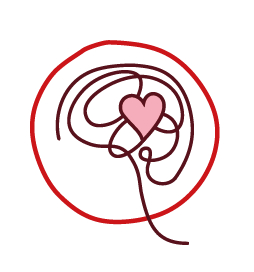
A Brief History of Love

The Biology of Happiness
Everyone wants to be happy, but the definition of happiness varies across individuals. But What is Happiness, Scientifically?
During the lecture, we will explore cutting-edge research to understand the biological definition of happiness. We will learn that our brain is not programmed for happiness but tends to focus on negativity and suffering. Thus, happiness begins where suffering ends. During the lecture, we will learn practical tools how to increase mental resilience and achieve happiness in an era of stress and instability.

Stress Anxiety and the human Brain
In recent years, the levels of stress, tension, and anxiety have been constantly increasing due to various factors such as economic pressure, instability and the excessive use of technology.
During this lecture, we will explore what happens to our brain and body when we are under stress, why people react and cope differently with stress, what are the difference between men and women when it comes to stress and why some people are more sensitive to stress then others. Additionally, we will learn practical tools to manage and reduce stress and improve our relationships to create personal and communal resilience.

The Biology of Empathy

Female Brain Vs Male Brain
“Women from Venus, Men from Mars.” The differences in our physical appearance are visible, but what are the differences in our brains? Is there such a thing as a “male” brain and a “female” brain, what has more impact – biology or environment?
In this lecture, we’ll embark on a fascinating evolutionary journey to explore the biological differences between females and males – differences in the hormones, neurons, and genes. From risk-taking to dealing with stress, parenting to communication styles, we’ll examine the factors that make the differences between the sexes. Understanding these differences can help us communicate more empathetically.
